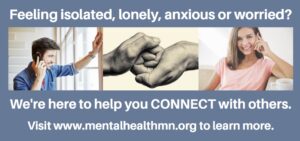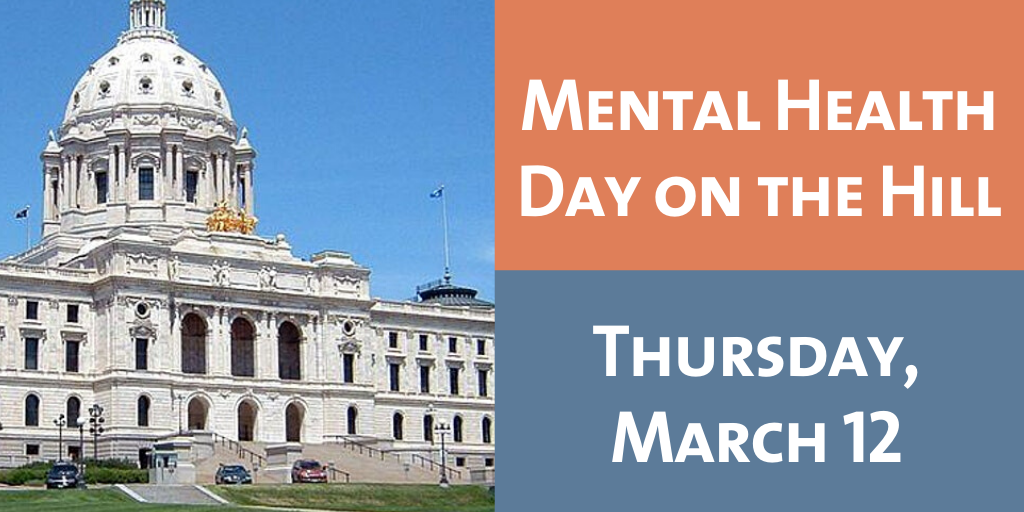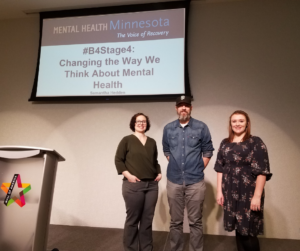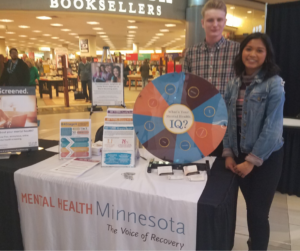
The CONNECT initiative provides social connections by phone between volunteers and people who may be struggling with social isolation, loneliness, stress, anxiety or worry during the social distancing related to COVID-19. In addition to connecting, volunteers will also be able to provide people with information and resources to help address any mental health concerns if needed.
Long-term social isolation and/or loneliness can be detrimental to both mental health and physical health, according to a number of studies, one of which noted that the impact of long-term loneliness on physical health was equivalent to smoking 15 cigarettes per day.
“For many people across Minnesota, social distancing and “staying at home” is increasing levels of anxiety, stress, and worry. It’s our hope that our organization and volunteers can help address that,” said Shannah Mulvihill, Mental Health Minnesota’s executive director. “We’re all making big adjustments in our lives, and it’s really difficult. But social distancing does not have to mean social isolation and loneliness.”
Anyone in Minnesota can sign up to receive phone calls from Mental Health Minnesota volunteers at www.mentalhealthmn.org. Those interested in serving as volunteers can also sign up our website.
Discover more mental health and COVID-19/social distancing resources.
 “40 percent of American adults say they are socially isolated.” Our Executive Director, Shannah Mulvihill, discussed with Fox 9 Buzz on March 17, 2020, the need to make mental health not just physical health, a priority during this COVID-19 emergency period. With our country on lockdown and social distancing measures in effect, those who already feel isolated are struggling. In fact, we’ve seen a 20 percent increase in anxiety screenings across the country over the last few weeks.
“40 percent of American adults say they are socially isolated.” Our Executive Director, Shannah Mulvihill, discussed with Fox 9 Buzz on March 17, 2020, the need to make mental health not just physical health, a priority during this COVID-19 emergency period. With our country on lockdown and social distancing measures in effect, those who already feel isolated are struggling. In fact, we’ve seen a 20 percent increase in anxiety screenings across the country over the last few weeks.




